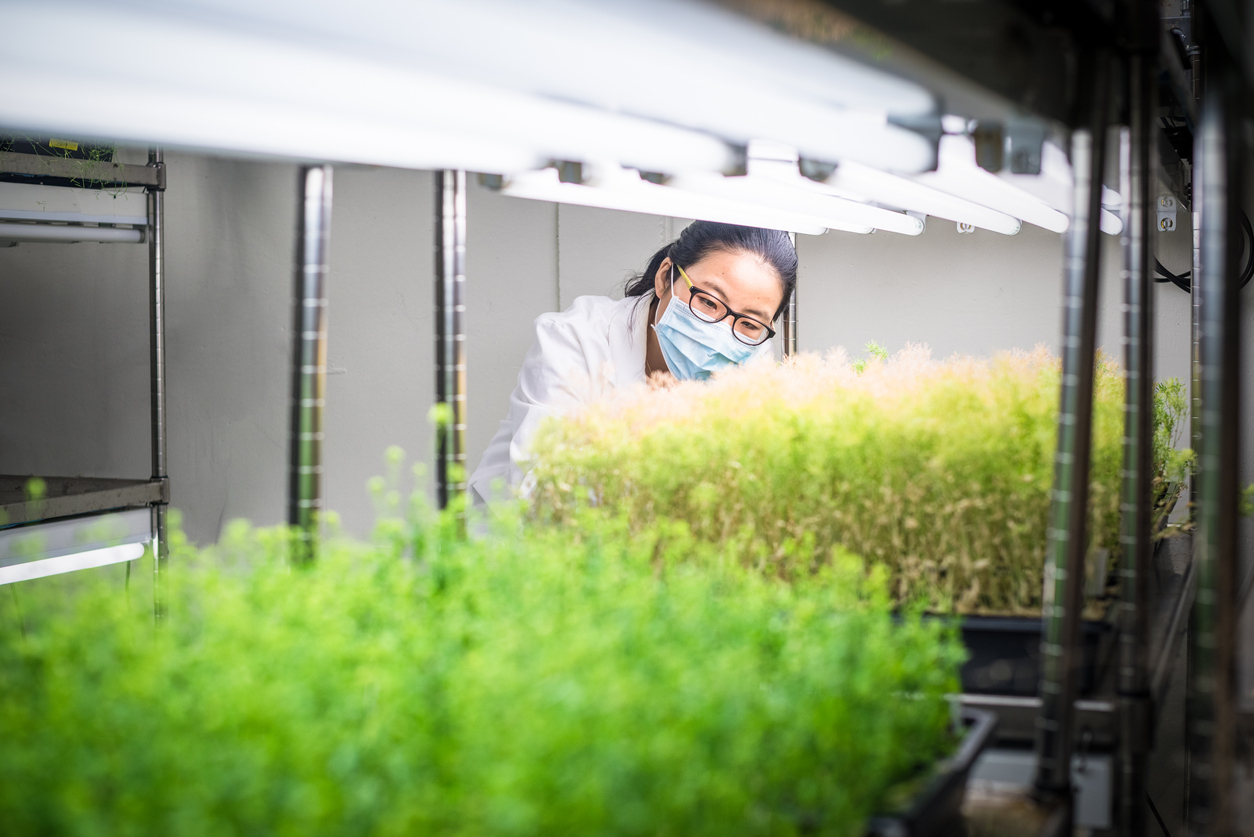
Anti-stress Function of AtPDI1 Linked to Disulfide Isomerase Activity
January 12, 2022| |
Shandong Agricultural University scientists reported that the thiol-disulfide exchange activity of Arabidopsis protein disulfide isomerase 1 (AtPDI1) is involved in the response to abiotic stresses. Their findings are reported in BMC Plant Biology.
Previous studies have shown that AtPDI has disulfide isomerase activity and to be involved in the stress response. However, it was unknown if anti-stress function is directly related to the activities of thiol-disulfide exchange. Thus, the researchers conducted a study wherein the encoding sequences of AtPDI1 of wild-type and double-cysteine-mutants were transformed into an AtPDI1 knockdown Arabidopsis line (pdi), and homozygous transgenic plants named pdi-AtPDI1, pdi-AtPDI1m1 and pdi-AtPDI1m2 were obtained.
Results showed that the germination ratios of pdi-AtPDI1m1 and pdi-AtPDI1m2 were significantly lower under abiotic stresses and exogenous ABA treatment, while the highest germination rate was obtained with AtPDI1 overexpression in the WT (WT- AtPDI1). In terms of the root length, a higher germination rate was observed with a longer root length. When seedlings were exposed to various stresses such as salt, drought, cold, and high temperature, pdi-AtPDI1m1, pdi-AtPDI1m2 and pdi displayed lower survival rates than WT and AtPDI1 overexpression plants.
Based on the results, the anti-stress function of AtPDI1 is strongly linked to the activity of disulfide isomerase.
Read more findings in BMC Plant Biology.
| |
You might also like:
- Study Shines Light into "Black Holes" in Arabidopsis Genome
- Radish Transcription Factor Activates Anthocyanin Production in Arabidopsis
- Transcriptional Activation via CRISPR-dCas9 Mimics Overexpression Phenotypes in Arabidopsis
Biotech Updates is a weekly newsletter of ISAAA, a not-for-profit organization. It is distributed for free to over 22,000 subscribers worldwide to inform them about the key developments in biosciences, especially in biotechnology. Your support will help us in our mission to feed the world with knowledge. You can help by donating as little as $10.
-
See more articles:
-
News from Around the World
- International Team of Researchers Discover Plant Gene Crucial to Production of Clonal Seeds
- ARS Scientists Readying Wheat with Climate Resiliency
- Coexistence of GM Seed Production and Organic Farming A Success in Chile
- Smart Packaging from Corn Extends Food Shelf Life
- Biotech Crops Get Safety Approval After Pilot Testing in China
- Australian OGTR Receives Application for Field Trial of GM Sorghum
-
Research Highlights
- Anti-stress Function of AtPDI1 Linked to Disulfide Isomerase Activity
- Transgene Inheritance Found to be Stable in Field Grown Pears
- Egyptian Scientists Develop Drought-Tolerant Tomatoes
-
Plant
- CRISPR to Supercharge Lettuce with Nutrients
- Japan's CRISPR Fish Enters Market
- VIB Conducts Three Field Trials of Genome-Edited Maize
-
Read the latest: - Biotech Updates (November 12, 2025)
- Gene Editing Supplement (October 29, 2025)
- Gene Drive Supplement (February 22, 2023)
-
Subscribe to BU: - Share
- Tweet

